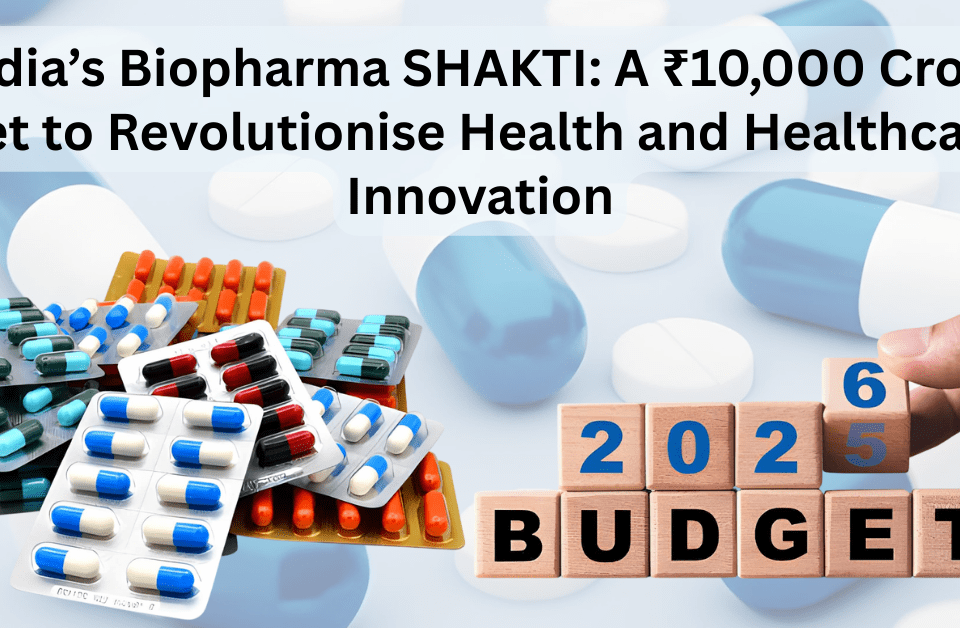
India’s Innovation Inflection: Why the ₹5,000 Crore Pharma R&D Scheme’s Deadline Extension Matters
November 10, 2025
Redrawing the Patent Map: How India’s Crackdown on “Evergreening” is Rewriting Pharma IP Strategy
November 14, 2025Pharma’s New Gold Rush: Inside the Explosive Race for Next-Gen Weight-Loss Drugs
In a world where body weight often dictates health outcomes, the race to develop effective weight-loss medications has morphed into one of the most fiercely contested arenas in big pharma. The recent article “Weight-loss drug developers line up to tap lucrative market as competition heats up” from The Economic Times shines a spotlight on how companies are plunging into the burgeoning obesity market with unprecedented intensity.
At the heart of this surge is the tantalising projection: the global obesity-treatment market is expected to soar toward $150 billion by the early 2030s. With so much potentially at stake, industry giants such as Pfizer, Novo Nordisk, Eli Lilly and many others are accelerating their efforts—from novel injections to oral pills—to seize the advantage.
A Shift in Gravitas
The conversation used to revolve around lifestyle, diet and exercise. Today, pharmacology wields the spotlight. Novo Nordisk, long considered the leader in GLP-1 injection based obesity therapies, is finding competition creeping in from multiple fronts. Reuters notes that Novo has encountered stumbling blocks: its new candidate CagriSema delivered a 22.7% weight-loss rate in one late-stage trial, falling short of its own 25% target. Meanwhile, Pfizer’s $10 billion acquisition of biotech firm Metsera reflects its ambition to re-enter the obesity treatment arena in a big way.
Eli Lilly is also flexing muscle, advancing its innovative amylin-based therapies and oral candidates that may eventually rival injections. And not to be outdone, companies like Roche, Amgen and Merck are entering the fray, each chasing a slice of this high-stakes market.
Why the Surge Now?
Several dynamics are converging to fuel this surge. First, the global prevalence of obesity and associated metabolic diseases is growing—creating demand not just for weight-loss, but for safe, effective medical interventions. Second, breakthroughs in hormone-modulator drugs (GLP-1, amylin, etc) have proven that meaningful weight reductions are possible—sometimes 20% or more—which changes the narrative from “moderate help” to “major shift”. For example, one trial by Lilly’s retatrutide showed up to 24.2% weight loss over 48 weeks. Third, the financial upside is undeniable: payers and healthcare systems are willing to back treatments that could reduce co-morbidities like diabetes, cardiovascular disease and more.
Winners and Risks
From my vantage (inspired by our work at Edward Young Labs and our keen eye on emerging health-tech), the clear winners will be those companies that can combine safety, convenience and cost-effectiveness. A once-monthly injection would trump a weekly one; an oral pill that works would trump injections. That’s exactly what Pfizer hopes to achieve with MET-097i (once-monthly GLP-1) after acquiring Metsera.
However, major risks loom. Safety concerns remain persistent—Pfizer’s previous oral GLP-1 candidates were halted due to liver safety issues. Regulatory scrutiny will only tighten as these drugs become mainstream. And pricing remains a challenge: if these therapies cost tens of thousands per year, access may be limited, slowing uptake in many markets.
What It Means for Patients & Industry
For patients, the implications are hopeful but complex. Until recently, many saw weight-loss drugs as marginal aids; now they could become standard treatment for obesity and its complications. That said, drugs are not magic bullets—they complement lifestyle interventions, not replace them. Healthcare providers must still emphasise diet, exercise and holistic care.
From an industry perspective, the race is anything but over. We’re transitioning from a mono-therapy era (single hormone target) to a multi-target, diverse‐delivery era (pills, monthly injections, hormone combos). Collaboration, M&A, licensing agreements will proliferate—Pfizer’s big buy, Lilly’s AI-drug pact with Superluminal Medicines, Roche’s acquisitions all hint at a flurry of deal‐making.
Conclusion
The weight-loss drug market has morphed into a high-stakes frontline for pharmaceutical competition. As companies juggle the twin demands of efficacy and accessibility, the winners will be those who deliver both results and reach. The implications extend far beyond profit—this could reshape how we understand and treat obesity forever. And as observers, innovators and stakeholders (like Edward Young Labs), we’ll be watching closely.
In short: buckle up. The next wave of obesity treatments may well redefine both medicine and markets.




